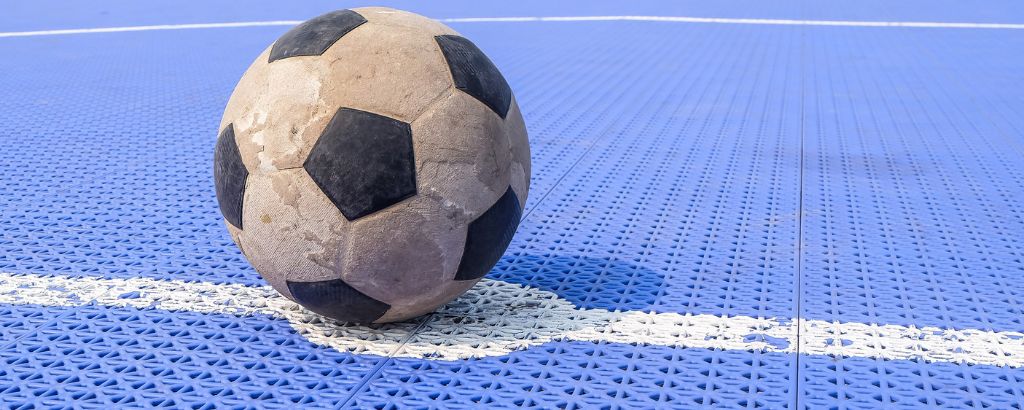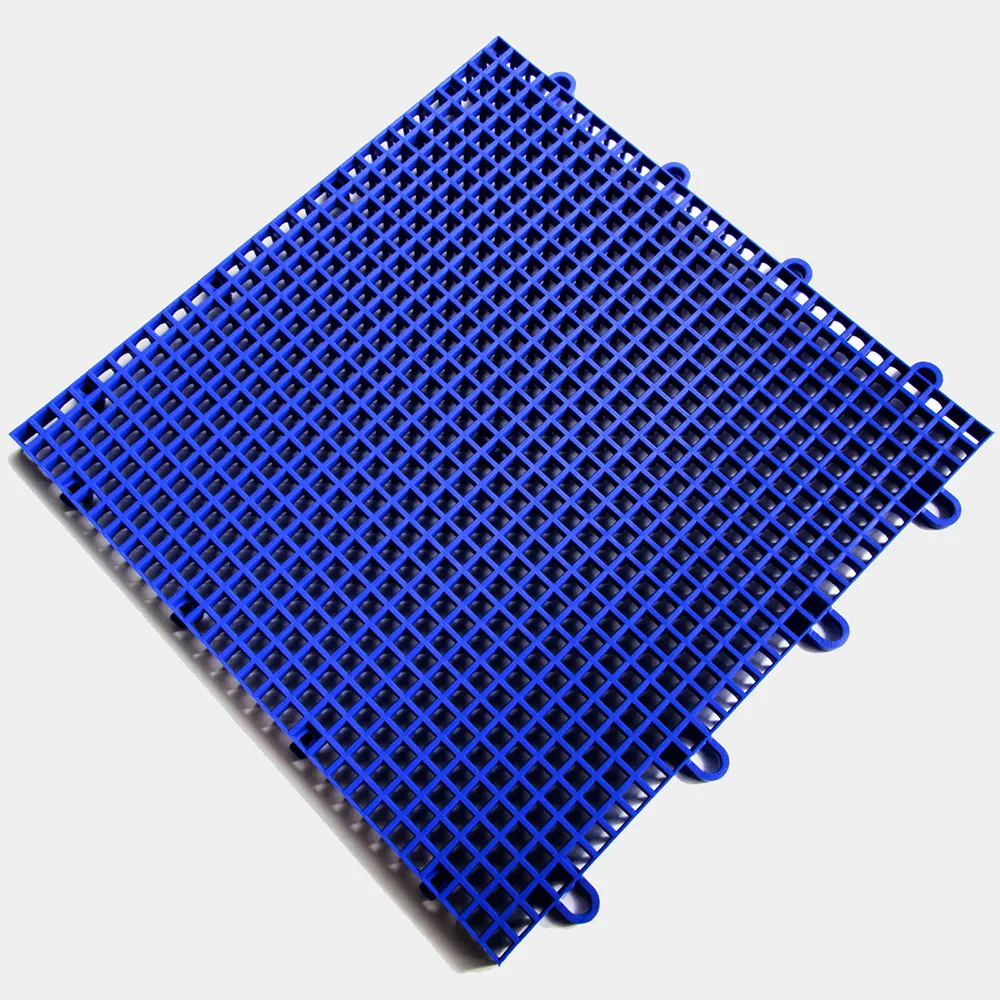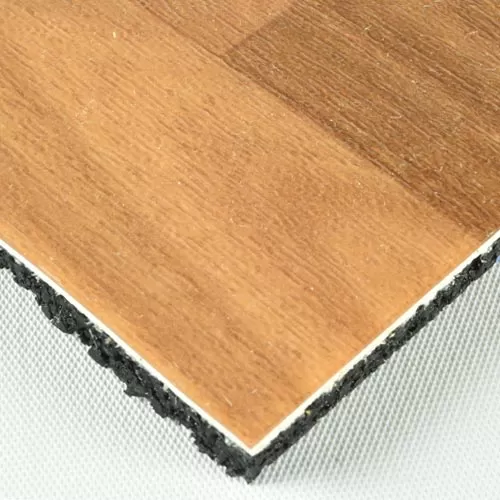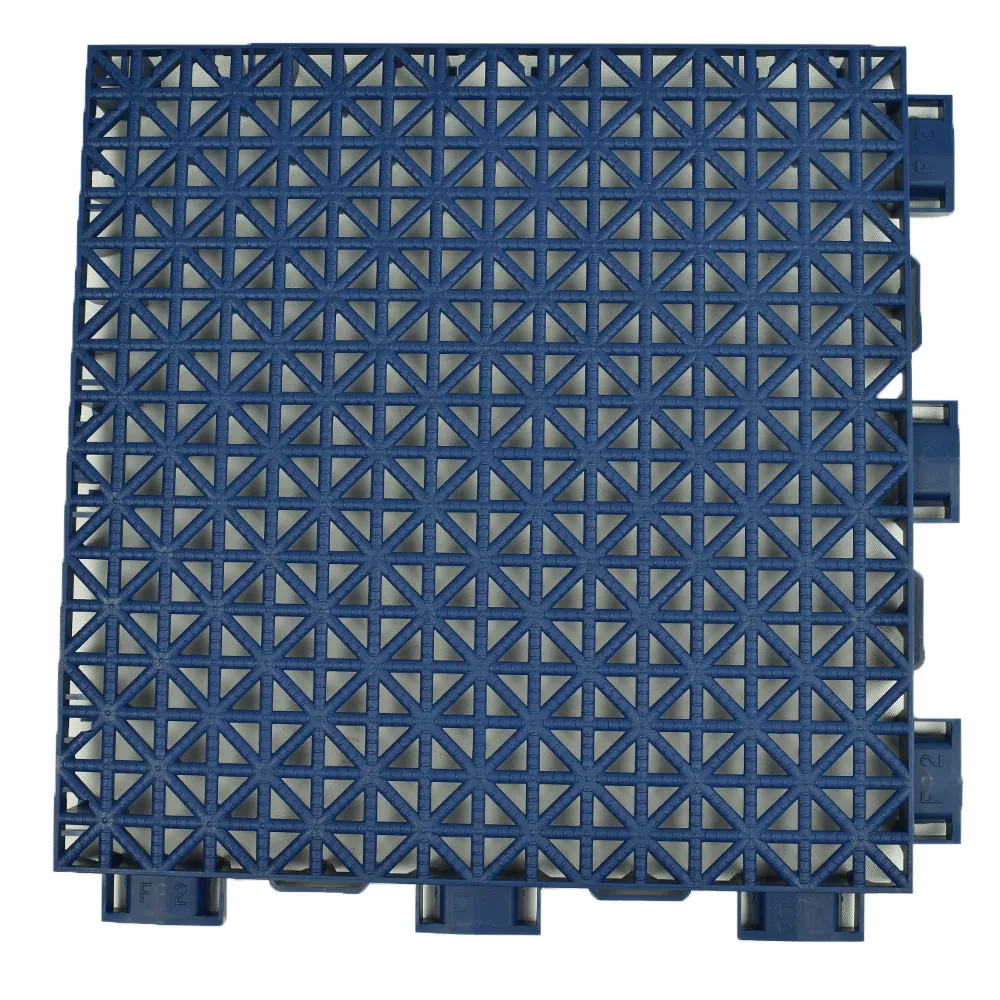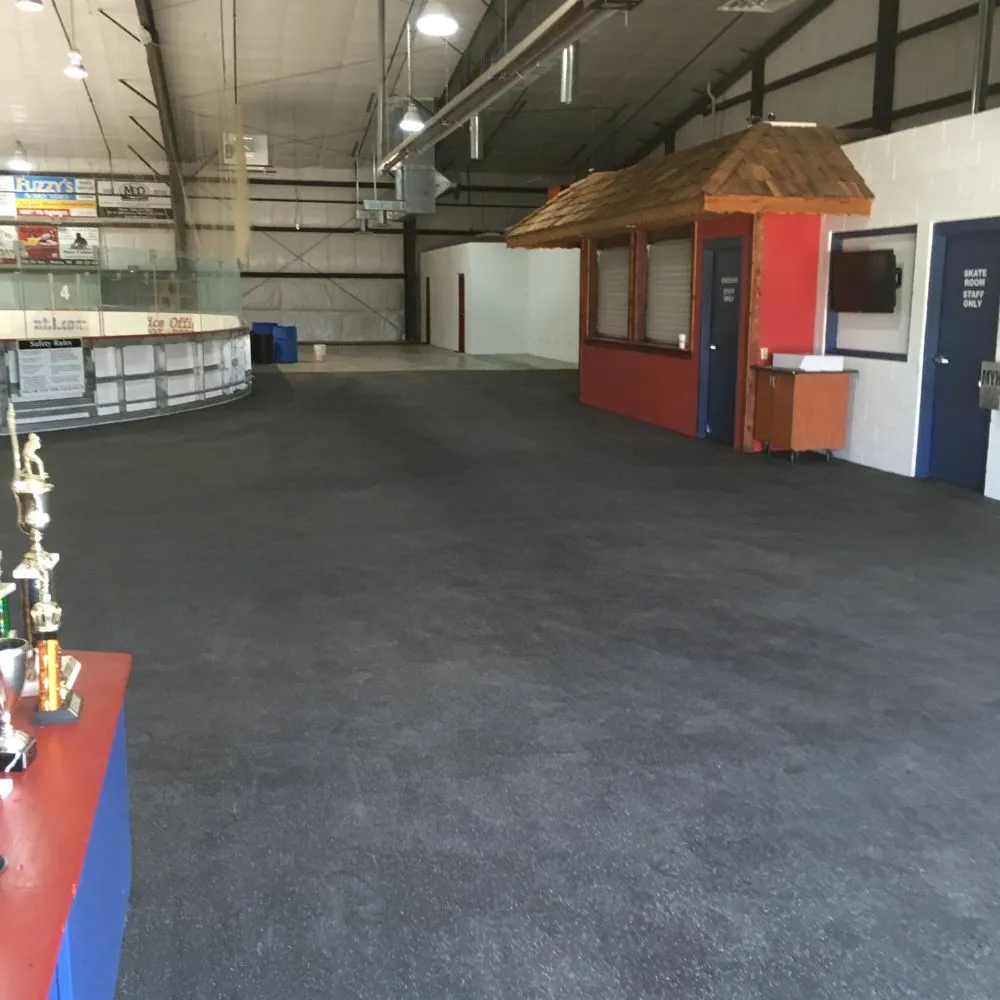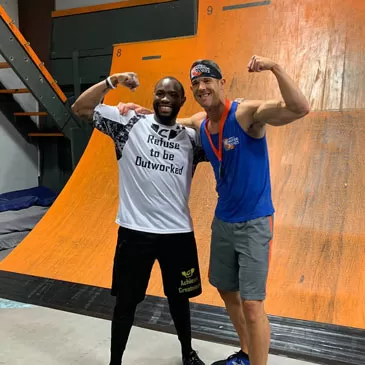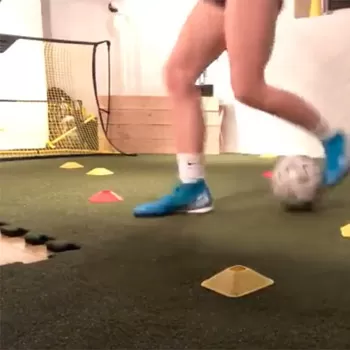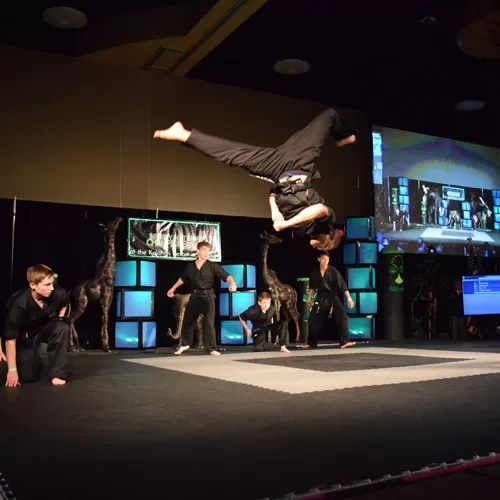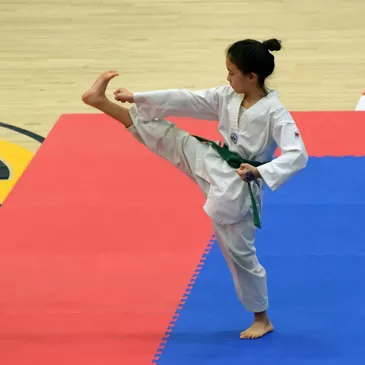Sports flooring creates a floor that’s safe for athletes to use and that delivers a true ball bounce. An athletic court material can consist of materials like PVC plastic, rubber, turf, and foam. Different products are available for setting up a playing surface for indoor or outdoor use. Some materials are lightweight, allowing you to create a mobile court that can go with you anywhere.
Article Library

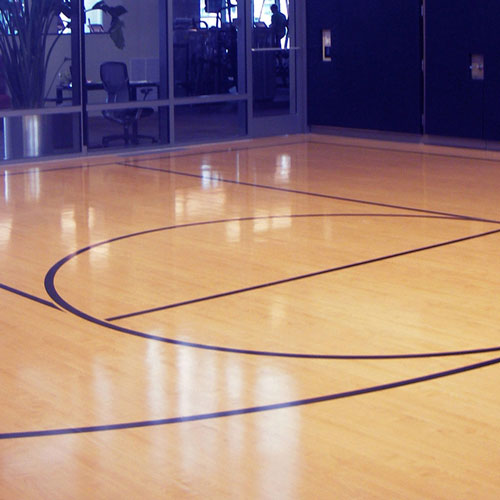
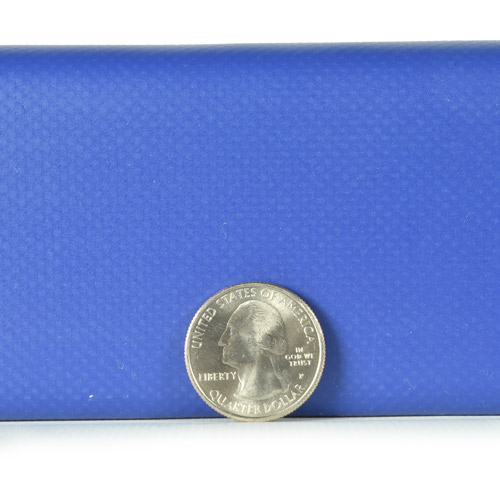
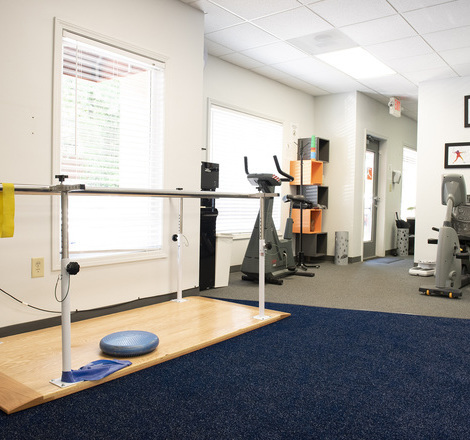
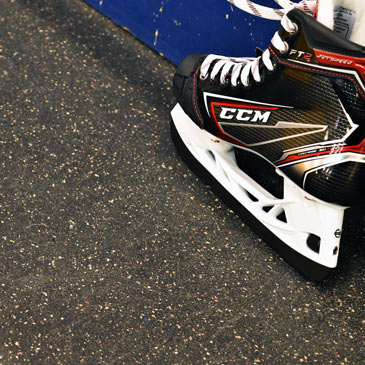
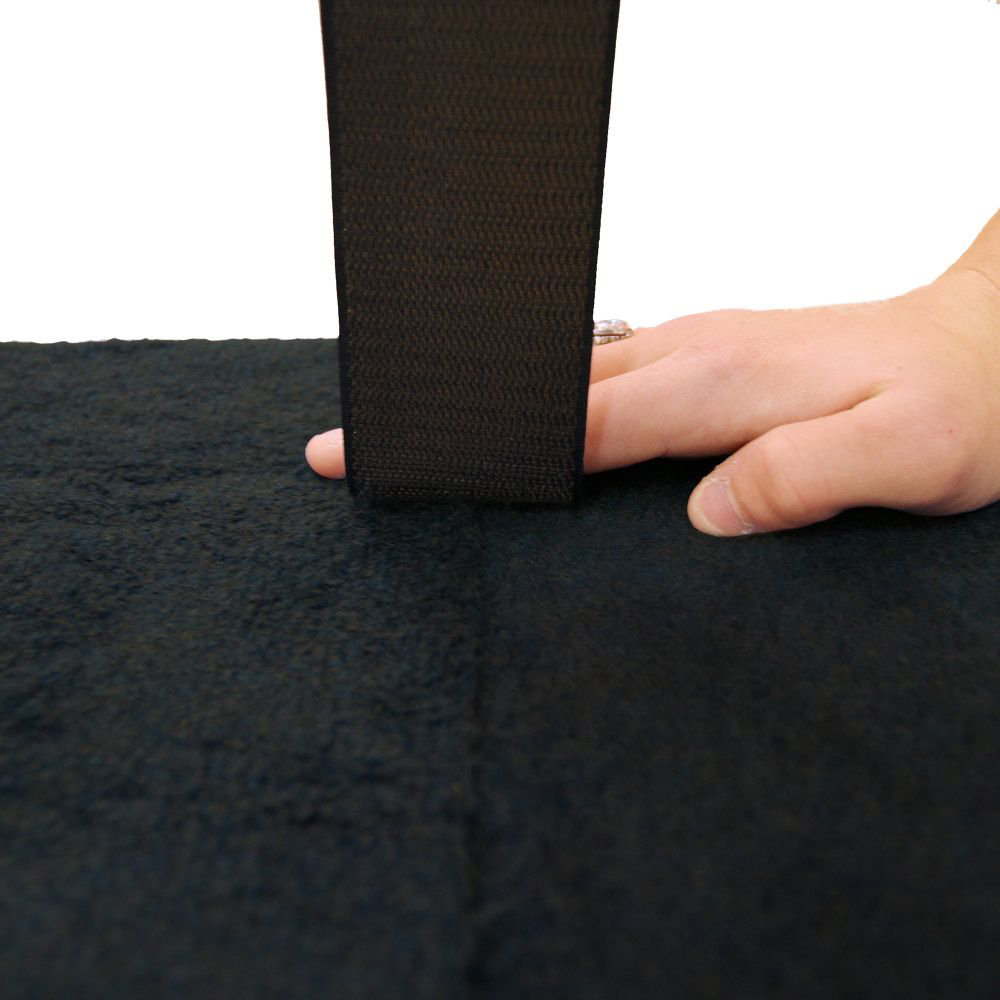
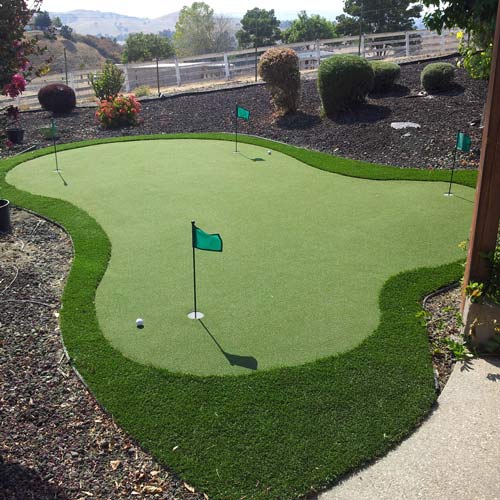
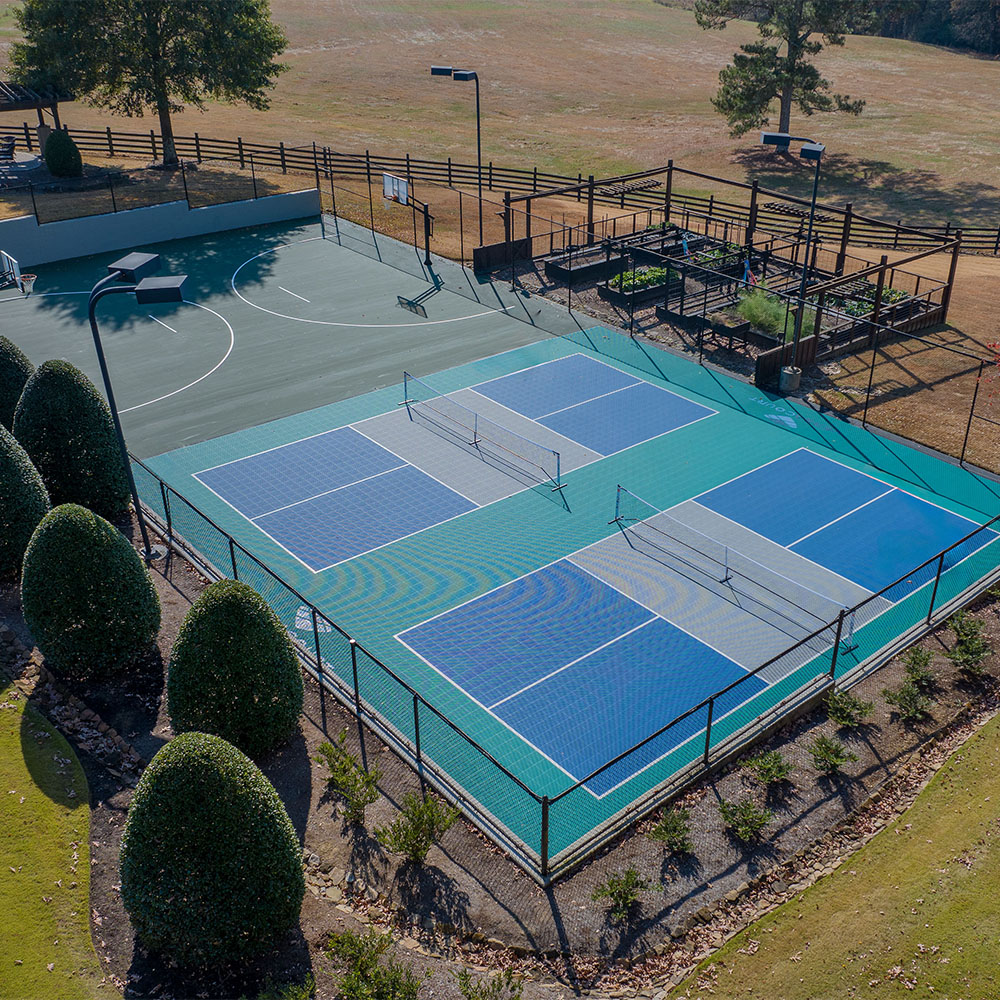
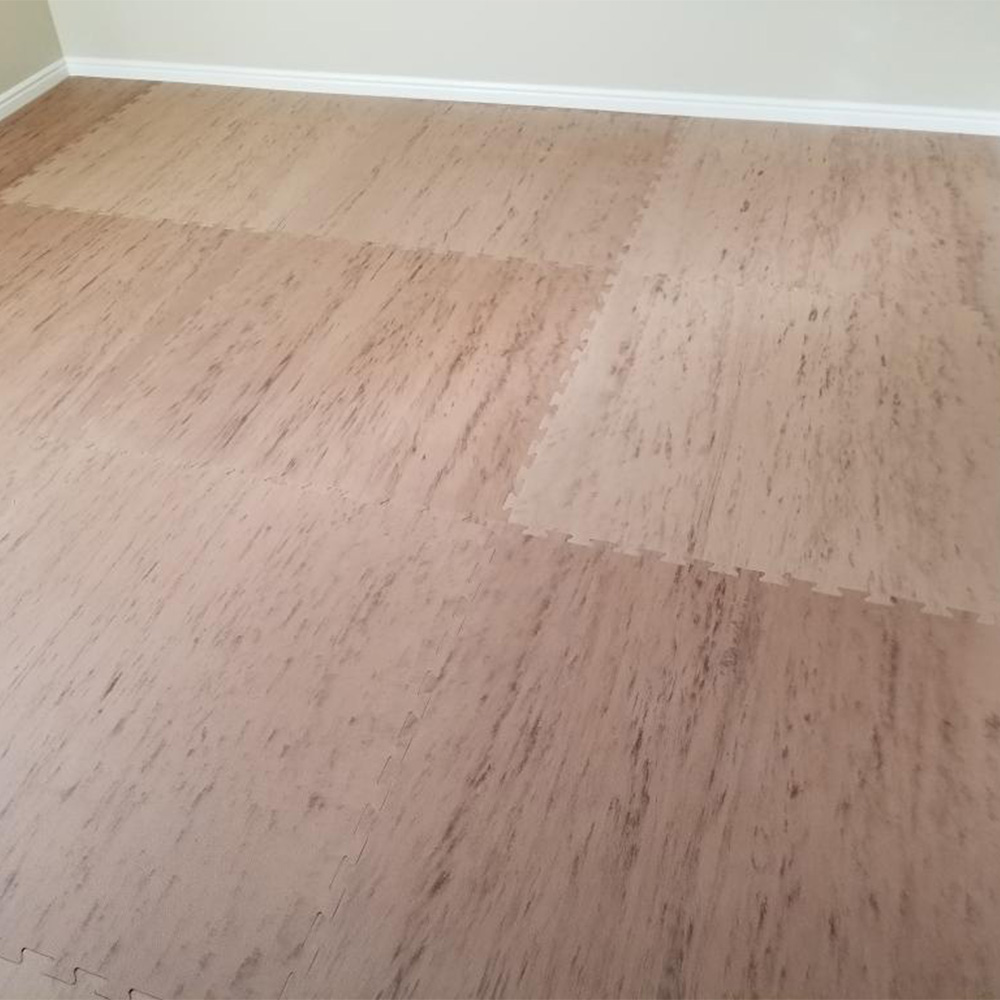
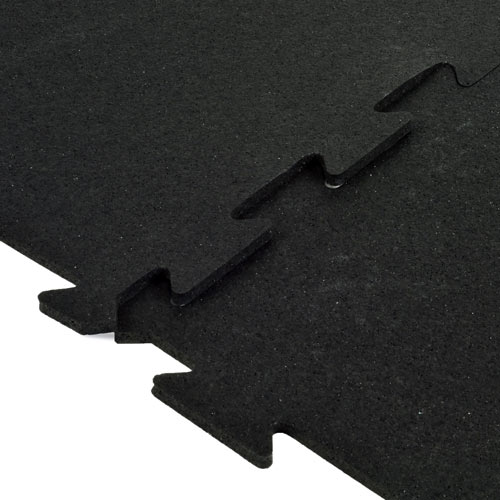
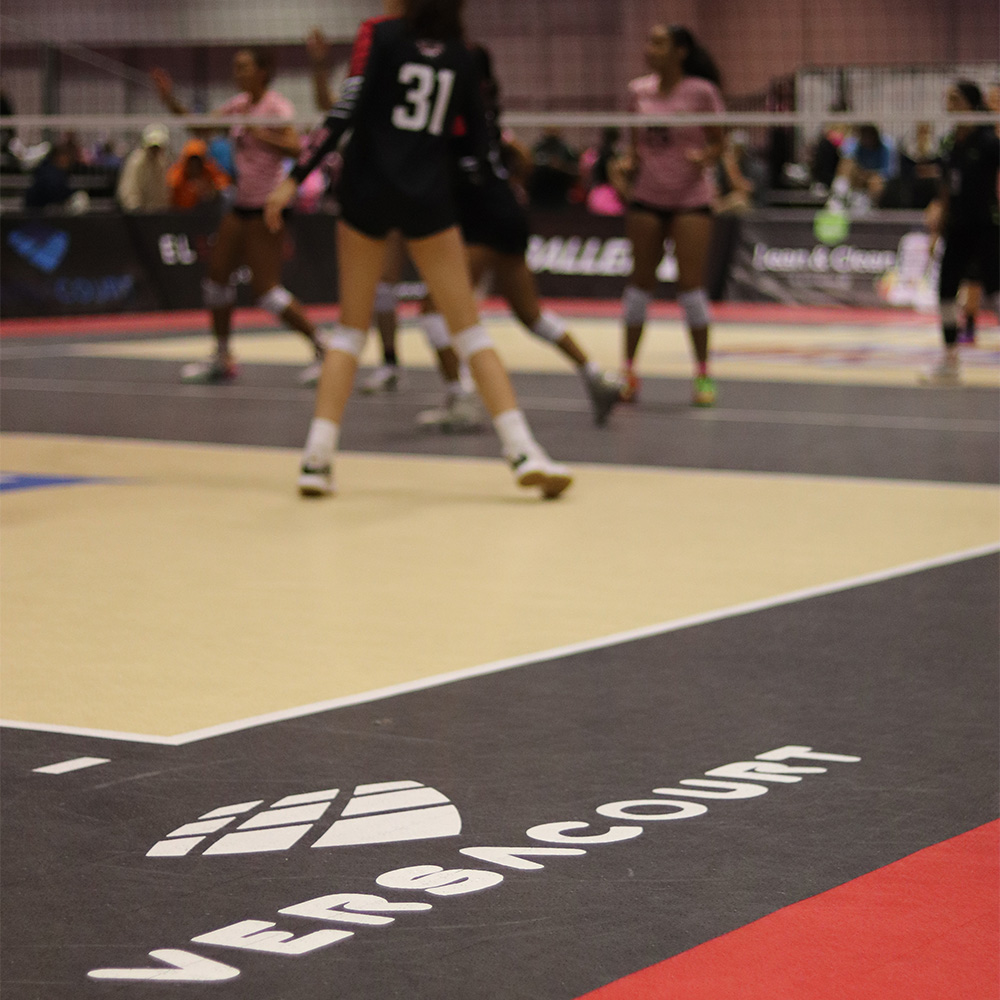
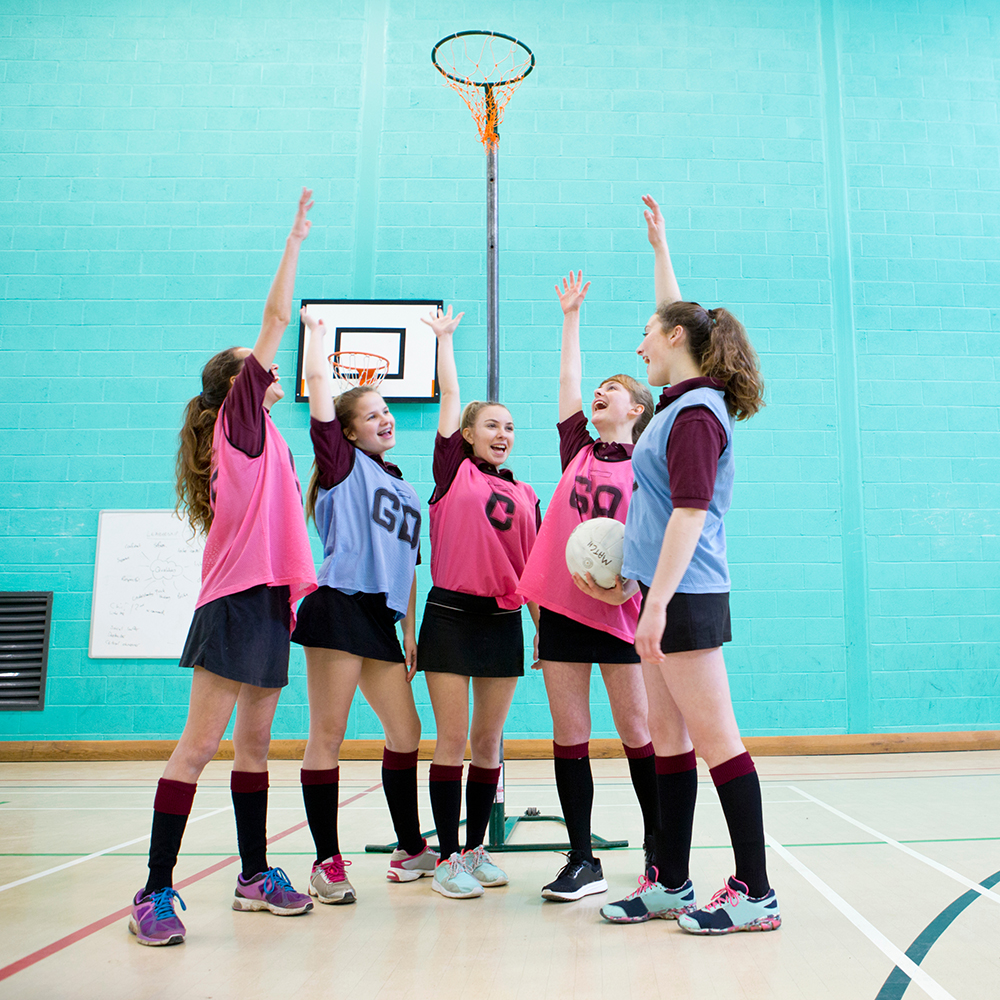
Video Library












Ideas Before You Buy Your Sports Flooring
Tips & considerations for purchasing sports floors:
The following blogs offer tips on what aspects to look for in sports flooring before making a purchase. Wherever you plan to use this flooring, these are all important things to learn before making your final decision.- Learn about the cost-effectiveness of using plastic volleyball court tiles to create a covering for an existing floor. Learn More: Considerations for Building a Plastic Volleyball or Basketball Court
- Learn what the easiest tiles to install for a high school, a middle school, a rec facility, a church, or a home are; they will be those with a reusable interlocking design system. Learn More: What Are the Easiest Gymnasium Floor Tile Options to Install?
- Learn why a school gymnasium would be interested in choosing synthetic flooring to transform the look and space of the gym. Learn More: What Are The Benefits Of Synthetic Flooring For A School Gym?
- Find out which interlocking tiles are the best polypropylene plastic surface that provides a good grip for players who need to make quick movements while playing tennis. Learn More: What Are the Best Interlocking Tennis Court Tiles?
Top 10 Questions About Sports Flooring
Below are the most popular questions we've received about rubber flooring. Click the question to get a detailed answer and explanation on these topics.- Can You Lay Basketball Court Tiles Over Grass? As long as you have a flat space over which to place outdoor sports flooring, you can use tiles to create a sturdy space for basketball. If you want to maintain the viability of the grass, remove the tiles after a day or two to expose it to sunlight and airflow again.
- What Is the Best Portable Pickleball Flooring? Because a pickleball court is smaller than a tennis court, it’s easy to carry enough interlocking tiles to create an outdoor court for play almost anywhere. Interlocking PVC tiles are lightweight and snap together easily, which simplifies the process of constructing the pickleball court.
- What Is the Best Fish House Flooring? If you love ice fishing, having a comfortable ice house can make your time spent on the frozen lake far more enjoyable. Multiple materials can give you insulation against the ice surface, including PVC plastic, rubber, foam, and carpet, that will keep your feet warmer.
- What Is the Cost of a Turf Baseball Field? The basic cost for artificial turf material for a baseball field is between $2.10 and $3.50 per square foot. This is only the cost of the material, so you may have to pay extra for the cost of installation, fencing, fence padding, and other items needed to create the field.
- What's the Best Table Tennis Flooring? The best flooring to use around a ping-pong table will provide traction, so players can move quickly back and forth to make their shots. Select among interlocking tiles for materials like carpet, PVC plastic, rubber, and vinyl over a plastic base to simplify the installation process around the table tennis table.
- How Can I Protect a Golf Simulator Ceiling? As you are swinging a golf club indoors in front of a golf simulator screen, you want to make certain you will not damage the ceiling on the completion of the swing. You can attach interlocking foam tiles to the ceiling that protect the ceiling, as the foam absorbs the impact of the golf club.
- What Are The Best Roller Hockey Floor Tiles? To play roller hockey, you need to create a firm, flat surface, which allows the wheels on the roller blades to roll freely and the roller hockey ball or puck to move freely. Interlocking polypropylene tiles are extremely durable and provide a firm surface to play the game successfully.
- How Do You Make a Futsal Court? When playing a game of futsal, which is a 5-on-5 indoor soccer game, you want a firm, flat material that allows the ball to deliver a true bounce and roll. Rather than using artificial turf, a futsal court works better with interlocking vinyl tiles, PVC plastic tiles, or polypropylene tiles.
- What's the Best Indoor Soccer Turf? When creating an indoor soccer facility, rolls of artificial turf are a great choice to cover a large space quickly and efficiently. If you will be covering a smaller space at the indoor soccer facility, you may be able to use interlocking turf tiles, but rolls will almost always give you a better value and a faster installation.
- What Are the Best Mats for a Golf Simulator? To install an indoor golf simulator, you need the hardware and display screen used to create the simulation. However, you also need an extremely durable golf practice mat, allowing you to hit the ball successfully. You may want to create a subfloor of foam or carpet over which to place the golf mat for cushioning for the impact of the club.
Best Sports Flooring Products
Court Floor Tile Flat Top
With the Court Floor Tile Flat Top Tiles product from Greatmats, you can create sturdy sports flooring for an indoor basketball court or volleyball court.
DunkStar BaseCourt Outdoor Tile
With the DunkStar BaseCourt Outdoor Tile, you can create an outdoor court, as the perforated tiles allow water to drain through, ensuring the court is ready to use quickly after a rainstorm.
Athletic Vinyl Padded Roll
Trust the Athletic Vinyl Padded Roll as sports flooring for aerobics and other athletics, as it is highly durable and easy to clean.
VersaCourt Pro Wood Grain Court Tile
When you want to approximate the look of a hardwood basketball floor, the VersaCourt Pro Wood Grain Court Tiles have a faux wood grain pattern on vinyl attached to the top of a durable, interlocking plastic base.
VersaCourt Outdoor Game Court Tile
Our VersaCourt Outdoor Game Court Tile consists of a firm, durable plastic, ensuring it will stand up to regular athletic play without showing wear and tear.
Customer Installations
Monroe Youth Hockey Association
The Monroe Youth Hockey Association was looking to replace old, worn rubber flooring in the facility, and it selected our rubber roll to simplify the installation.
Hockey Facility: Rolled Rubber Sport
Republic Warrior Sports
To provide a safe landing space for the obstacle course at Republic Warrior Sports, the owners researched multiple options before deciding on Greatmats’ foam mats for durability and comfort.
Obstacle Course: Premium Martial Arts Karate Mat
Customer Bella Douglas
Customer Bella Douglas wanted to create a soccer practice area in the basement, and, after much research, she chose our interlocking turf tiles for comfort and ease of installation.
Infinity National Championships
When seeking easy-to-install and easy-to-disassemble mats for a tournament setting, Infinity National Championships chose our martial arts mats to ensure the organization receives a good value and excellent durability.
Karate: Premium Martial Arts Karate Mats
Badger State Games
The Badger State Games hosts multiple martial arts athletes during a tournament, and the organizational group decided to purchase our mats to create safe sports flooring for the competitors.
Taekwondo: Pro Taekwondo Martial Arts Mats
Sports Flooring Installation & Maintenance Videos
Sports Flooring - Flat Top Court Tiles, Dance Floor Subfloor, Gym Floor
How To Cut Hard Plastic Court Tiles
VersaCourt Pro Wood Grain Court Tile
